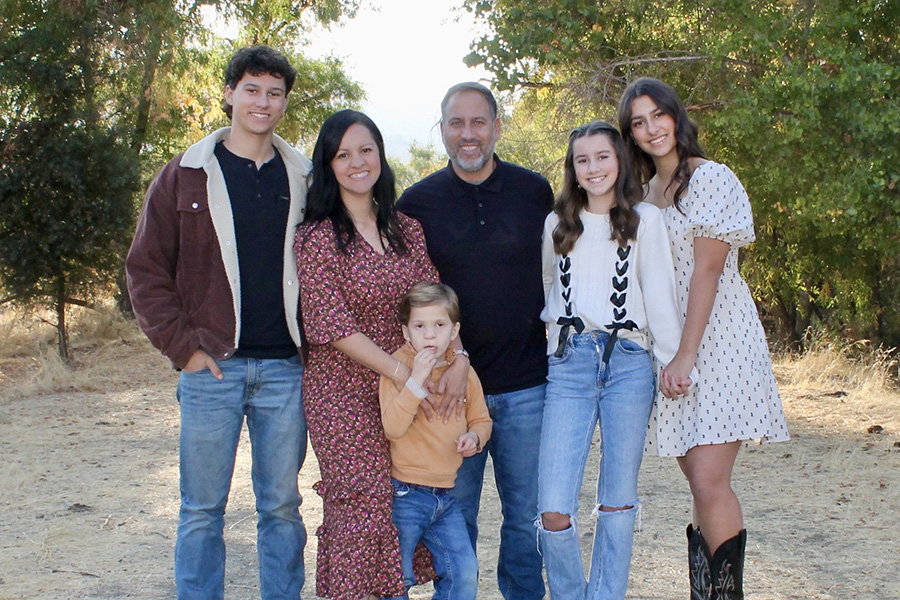If your child has recently been diagnosed with Fragile X, it can be overwhelming and scary. Fragile X can present a unique set of challenges for individuals and their families. However, as countless families who live with Fragile X disorders can readily attest, a challenge does not always mean something bad – it’s just different.
What is Fragile X Syndrome
Fragile X syndrome (FXS) is a genetic condition that causes a range of developmental problems including learning disabilities and cognitive impairment.
FXS is caused by changes in a gene called ‘Fragile X Messenger Ribonucleoprotein 1’ (FMR1). FMR1 usually makes a protein called FMRP that is needed for brain development. People who have FXS do not make this protein.
FXS affects both males and females. However, females often have milder symptoms than males.
Signs of FXS include:
- Developmental delays: Not sitting, walking, or talking at the same time as other children the same age
- Learning disabilities: Trouble learning new skills
- Social and/or behavior problems: Not making eye contact, social anxiety, trouble paying attention, hand flapping, speaking without thinking
- Appearance: Large head size, long face (prominent forehead and chin), protruding ears, large testes (in males after puberty), flat feet, hyper-flexible joints
Fragile X Syndrome Treatment
It is important to remember that every child with FXS is unique, so there is no “one best way” to treat the condition. You will need to work closely with your child’s healthcare team to create a plan for their well-being. Their treatment plan will be dependent on their level of diagnosis.
Treatment may include things such as:
- Specialized education: Depending on the level of developmental delays, your child may require extra assistance within the classroom or potentially specialized schooling.
- Behavioral medication: FXS often occurs with other conditions. It has a strong correlation with anxiety, attention-deficit/hyperactivity disorder (ADHD), autism spectrum disorders, and depression. These conditions may require medication to alleviate symptoms.
- Vocal training: Children with FXS usually have weak sequential processing, working memory, and attention skills. These skills are critical for language learning, so your child may require vocal training to learn to speak.
Receiving a Fragile X Syndrome Diagnosis
After receiving a diagnosis of Fragile X, you may feel overwhelmed. While FXS can present learning and social challenges, many children with this condition go on to live long, fulfilling lives.
While your child’s healthcare team should take care of the finer details, here are some tips to help be best prepared for your next steps:
- Education: Educate yourself on FXS so you can understand the basics and be able to ask more in-depth and detailed questions along the way.
- Support: Whether it is an FXS support group, leaning on friends and family, or both – you should seek and accept support from those around you.
- Self-care: When your child requires extra special care, it is easy to forget about self-care. Ensure you take time out for yourself.
Most importantly, remember, you are not alone. Fragile X is common. There is a whole community that understands what you’re going through and can be there to provide guidance and support throughout your journey.
Visit the Fragile X Foundation for more resources and links to support groups and clinics: https://fragilex.org/living-with-fragile-x/newly-diagnosed/
Xtraordinary Riley!
Riley is 10 years old, and was born with Fragile X. From the day Riley was born, his parents knew he was
different—and special. They were told he would never walk, talk, or do much of anything. One doctor
went so far as to say he wasn’t even going to live. Thankfully, they ignored those comments and
advocated for Riley.
Riley recently attended a space camp and even met Mark Vande Hei (an astronaut). He aspires to be an
astronaut when he grows older, and with the support of his parents advocating for him, he absolutely can
achieve those dreams!
Read more of Riley’s story here: https://fragilex.org/real-life-stories/never-stop-chasing-your-dreams/
Xtraordinary Buddy!
After a series of misdiagnosis, Buddy was finally diagnosed with Fragile X thanks to his parents
perseverance.
Buddy graduated high school in 2023 and now is thriving in the Career Studies Program at Penn State
Harrisburg. He also has a job at a supplement store and is motivated by adult responsibility.
Buddy is proving that Fragile X does not define you as a person or change your life path.
Read more of Buddy’s story here: https://turnpaughhwc.com/our-familys-journey-with-fragile-x-syndrome/
Related articles:














